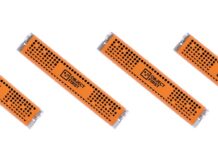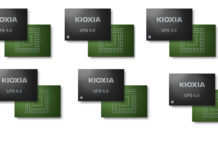Google Cloud has eliminated data egress fees for customers that quit its service. Amit Zavery, Head of Platform for Google Cloud, blogged: “Google Cloud customers who wish to stop using Google Cloud and migrate their data to another cloud provider and/or on premises, can take advantage of free network data transfer to migrate their data out of Google Cloud.” Google Cloud customers still pay data egress (data transfer costs) when, for example, “data moves from a Cloud Storage bucket to the Internet.”
…
InfluxData, which has developed the time series database InfluxDB, has achieved AWS Data and Analytics Competency status in the Data Analytics Platforms and NoSQL/New SQL categories. InfluxDB connects with AWS services for developers to collect time series data, create data pipelines, and analyze data in real-time.
…
MAN Energy Solutions, a solutions provider in the maritime, power, and industrial sectors, has integrated the InfluxData real-time data analytics platform across its connected equipment operations. InfluxDB Cloud is the core of its MAN CEON cloud platform, a pivotal component in the company’s digital service and sustainability strategy to achieve fuel reductions in marine and power engines through the use of real-time data.
…
Kinetica, which supplies a real-time database for analytics and generative AI, announced the availability of a Quick Start for deploying natural language to SQL on enterprise data. This is for organizations that want ad-hoc data analysis on real-time, structured data using an LLM that accurately and securely converts natural language to SQL and returns quick, conversational answers. This offering makes it fast and easy to load structured data, optimize the SQL-GPT LLM, and begin asking questions of the data using natural language. This announcement follows a series of GenAI developments which began last May when Kinetica became the first analytic database to incorporate natural language into SQL.
…
Object First, the provider of Ootbi (Out-of-the-Box-Immutability), the ransomware-proof backup storage appliance purpose-built for Veeam, announced its partnership with Prodatix, a Veeam Certified Architect company specializing in data management, to offer Ootbi as their primary backup storage solution for Veeam.
…
Phison told us what it’s demonstrating at CES in Las Vegas:
- Phison PS5031-E31T: Low-Power PCIe 5.0 controller with a 4-channel DRAMless design offering up to 10.8 GBps performance and 8 TB maximum capacity
- Phison PS5026-E26 Max14um: For increased capacity and accelerated performance, the PCIe 5.0 E26 controller with I/O+ Technology is the most powerful device in its class, with 14 GBps+ sustained sequential read performance and over 1,000 MBPs in all PCMark 10 and 3DMark Storage Tests – a world first!
- Phison PS5027-E27T: The next generation in low-power, high-performance PCIe Gen4 SSD in a 2230 form factor optimized to reduce game load times in portable gaming devices like Steam Deck, Ally, and Legion Go
- Phison PS2251-21 (U21): The world’s first USB4 single-chip solution suited for small portable devices in conventional and unconventional form factors with up to 4 GBps performance in the palm of your hand.
…
The SNIA’s Networking Storage Forum is presenting on the topic “Everything You Wanted to Know About Throughput, IOPs, and Latency But Were Too Proud to Ask” on February 7 at 10am PT. Collectively, these three terms are often referred to as storage performance metrics. Performance can be defined as the effectiveness of a storage system to address I/O needs of an application or workload. Different application workloads have different I/O patterns, and with that arises different bottlenecks so there is no “one-size fits all” in storage systems. These storage performance metrics help with storage solution design and selection based on application/workload demands. Register here.
…
Block storage startup Volumez has a customer and partnership relationship with Anodot, which produces an AI-driven business monitoring product. Anodot is using Volumez to deliver persistent block storage on AWS for its large farm of PostgreSQL instances. It is also incorporating the Volumez SaaS service into its product portfolio and distribution channels.
…
Software RAID supplier Xinnor and E4 Computer Engineering, an HPC European System Integrator, have established a partnership to deliver enhanced storage capabilities to customers who require fast storage performance to run high performance computing simulations and Artificial Intelligence workflows. E4 has integrated xiRAID, Xinnor’s software RAID designed for modern NVMe SSDs, into its storage offerings, which are based on the BeeGFS parallel file system.








